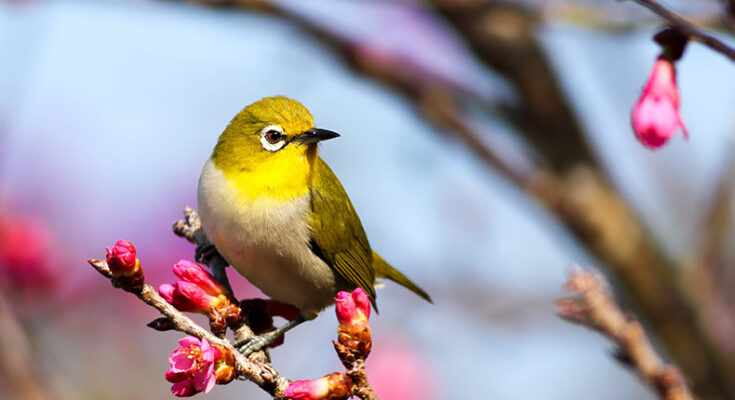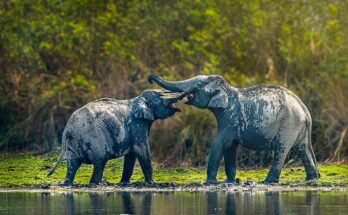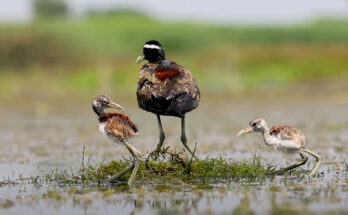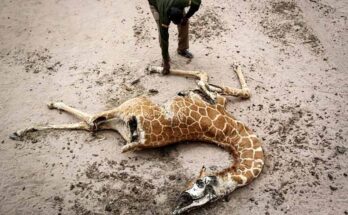Weaverbird – a very intelligent bird & natural engineer. Image Courtesy – Wikipedia
You must have seen so many birds in the world. Every bird has a different quality, some look very beautiful, some sing very well, some fly very high, some sound unique, etc. There are some birds that build very beautiful nests. The weaver bird belongs to this category. This bird is called the Weaverbird or Baya because they weave their nest with great effort.
It looks like a sparrow, its beak is a little thick and the tail is short. A chit-chit-like sound is heard. They like to live in herds. Sometimes sparrows also come into their herd.
They have many species. Their colours are different but their habits are the same. In other times, the colour of the bird remains brown, it becomes dark yellow during the courtship and the feathers become bright. With the onset of the rainy season, their courtship begins. During the rainy season, the process of making their nest starts.
Read: Global Wildlife Populations are decreasing due to human activities
The story of the nest building of this bird is also quite interesting. They build nests on clump-like trees around the fields. Their nest hangs in the air with the help of a twig. The weaver birds prepare their nest on the nearby trees in the place where the crop of millet, sugarcane is high. This small bird weaves small straws and leaves of grass and builds a very beautiful hanging nest like a lantern. Because of this skill, this bird is called an engineer of birds.
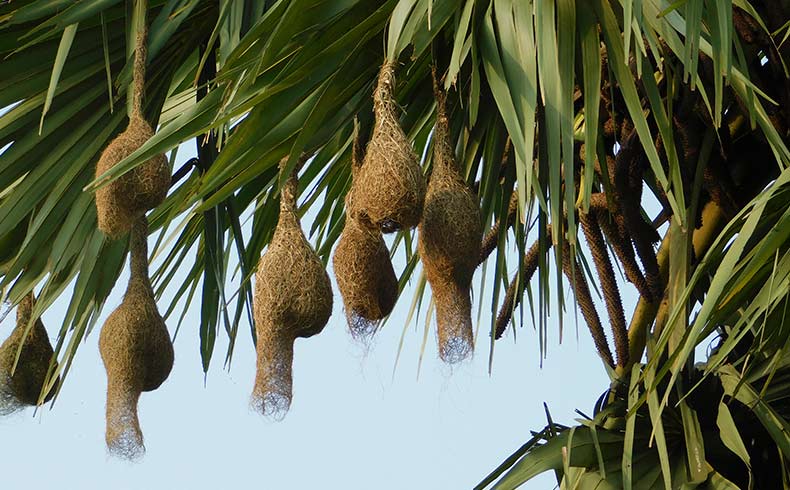
This small bird weaves small straws and leaves of grass and builds a very beautiful hanging nest like a lantern. Image Courtesy – Wikipedia
The way the little bird prepares their nest is praisable. The structure of their house is very complex and the shape is very beautiful. A few species of weaver birds can build multi-room nests.
They have no comparison with the other birds as far as decorating their own house. They are quite accustomed to living in groups and in colonies. The male members of most weaver bird species are quite brightly colored.
Male birds build nests, and the half-finished nests are tested by female birds. If they like each other, they tie the knot. The female lays two to four white eggs. The eggs hatch in about two weeks. Their babies learn to fly in a month. This is their life cycle.

